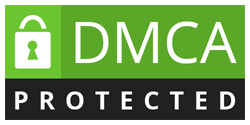BUS 250 wk 2 Disc. 1 replies (100 words each)(DO NOT CHANGE THE PRICE) IF YOU DO I WILL NOT SEND A HANDSHAKE.
#1 John Frei
Jul 14, 2017Jul 14 at 11:06am
Manage Discussion Entry
I do believe that there is a direct connection between a person’s belief system or their values and their ethics as a leader. You do not change who you are just by going to work, you might talk and act more professionally but your core values stay the same. “People cannot stand aside and claimthat certain issues are “not my problem.”” (Hammond, 2016, 7.2) If you are the type of person who in your day to day life outside of work acts as if a wrong that is happening is not your problem because it is not directly affecting you at the time then the same will likely be true for you when you are at work. However if you are the type of person who tries to fix problems even if they are not your own then the same will likely be true when you are at work. These are the leaders that try to help the company as a whole not just their department. They are trying to make the company a better place to work and are not just worried about their individual department or their budget. Some people can hide faults in their moral code if they know they are not up to societies norms but those faults will eventually come forth after enough time has passed. For instance if a male manager believes that women are unfit for the workplace then it will be seen in who he hires over time even if he does not openly speak of women not being able to do the work. He would not hire the best person for the job but rather who he thinks would be the best person for the job based off of his belief system.
Resources
Hammond, S. C., & Christensen, L. J. (2016). Corporate and social responsibility: Road map for a sustainable future [Electronic version]. Retrieved from https://ashford.content.edu
#2 Libbee McFall
Jul 15, 2017Jul 15 at 2:21am
Manage Discussion Entry
In an ideal world, ethical leadership would not be determined by the leaders personal beliefs for values. “Throughout history, classes of people deemed different from the politically powerful and dominant are subject to either overt violence or covert discrimination”. (Hammond, 2016. 7.4) We are not living in an ideal world, we are driven by our own values. Racial bias, gender bias, & religious bias effect leadership without being acknowledged. A persons belief system and values are instilled in youth. We form opinions without being aware how they direct our thinking. Hammond & Christensen give three examples (Hammond, 2016. 7.4) how decisions about age, race and sexual orientation can be faced in the work place. Being a southern woman from the bible belt of America, I can attest how your morals are part of your development. Taken from that environment and transplanted to a new one across the United States I find that my morals and personal beliefs are very different here. I embrace diversity and think it is necessary to a successful business to include. I would not be truthful if I said my personal morals did not play a part in my thought process. We must grow and acknowledge that we must be truthful with ourselves. The key is to overcome those ideals from youth and embrace change, to develop personally and analyze decisions to make sure your applying ethical leadership. My personal goal is to retain the personal beliefs and values of honesty, integrity and apply those to my leadership.
Hammond, S. C., & Christensen, L. J. (2016). Corporate and social responsibility: Road map for a sustainable future




